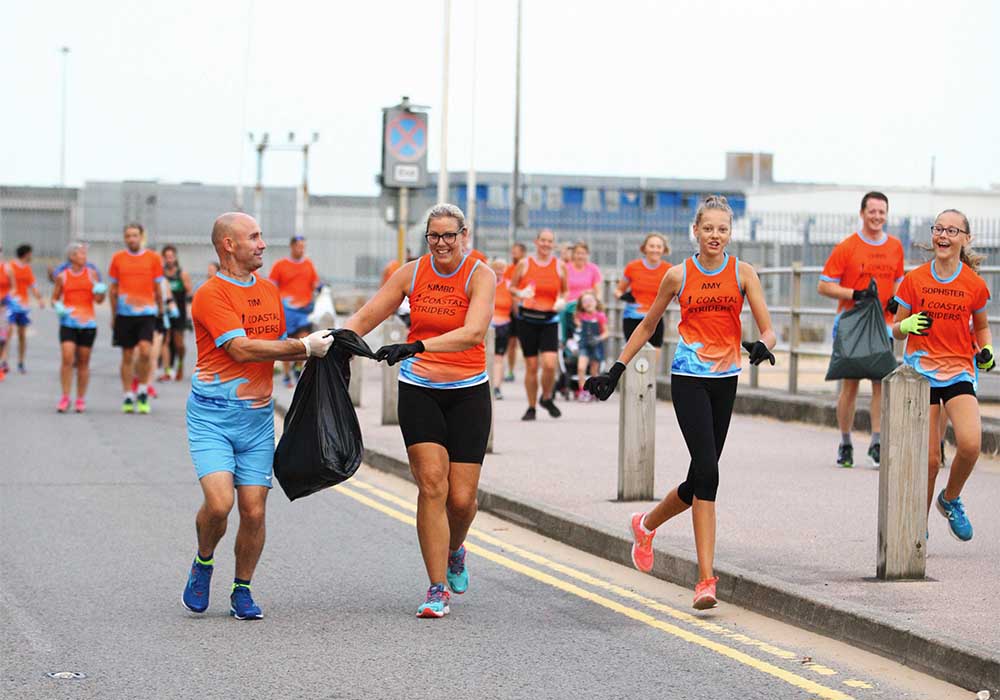[dropcap letter=”P”]
logging is already here! And yes, you’re right, do we need to use an English term? In this case, the term does not refer to a new woodcutting practice, or an alternative therapy to relax, or writing a blog while podcasting, but something far less glamorous: picking up garbage while going on a stroll or jogging.
This rubbish revival concept was born in Sweden a couple of years ago: The Swedes, always at the environmental forefront, coined the term plogging as a combination of the expressions plocka upp and jogging. Since then, the practice has spread throughout the world: in the first world, that is. In the rest of the planet, this has always been «working as a dustman » or «digging through garbage to survive ».
Strictly speaking, garbage has been collected for centuries –specifically, since we started throwing trash anywhere– but there was a need for a nice-sounding term for hipsters to practise it in an organized fashion, with an emphasis on the glamour of the latest Estrella Beer commercial. Since then, the practice has caught on, and cool neighbourhoods lack the litter the ploggers need and there are even apps to monitor the amount of clutter you collect.
Plogging is an easy task: put on a pair of old plastic kitchen gloves (basically, to avoid getting dirty), grab a garbage bag, go for a stroll across town and you’re off. The plastic gloves endow ploggers with a peculiar CSI aura: this, plus the runner outfit, marks the difference between ploggers and the local clean-up crew.
Here the group «Barcelona Plogging» with around forty members in Facebook, meets at least once a month to roam the city streets, usually by Barceloneta’s seaside quarter. During the summer they usually meet early in the morning, a time when the waterfront is littered with garbage. Shortly after, the plastic bags are full of empty bottles and all kinds of plastic waste and rubbish. It’s the Mens sana in corpore sano, with an environmental bias: staying healthy –body– while promoting environmental health. Plogging is a common activity in a few European capital cities, and New York has such groups as NYC Plogging, with hundreds of members and with events spread across 4 boroughs.
One of the plogging celebrities is David Sedaris, who used to practise plogging before the term was actually coined. The American writer used to go on a stroll to try and get some inspiration, and one day decided to make the most of his walks by collecting garbage he bumped into in his district. As The Guardian says, three years later, his neighbours showed their appreciation by naming the garbage truck after his name.
I find plogging a fantastic initiative, and I think the idea should be extended to all the citizens, be them athletes or, simply, passers-by. Not only because some city areas are absolutely filthy (seaside, parks and promenades, as well as sidewalks and railway tracks, for example) but also to raise awareness of most citizens that urban cleaning is everybody’s duty, not only town councils’. Seeing Shakira doing plogging, for example, could have an interesting pull effect.
Having said that, I am sure you have seen someone buying an ice-cream and throwing the wrapping on the floor, or someone winding down their car window and emptying the ashtray in the middle of the street, and you have not mustered the civic courage to confront them and draw their attention to their lack of public spirit, to say the least. Plogging could raise people’s consciences but the battle against dirty people will not be won, purely, with a buzz word. After all: cleaner is not he who plogs more, but he who dirties less.





















